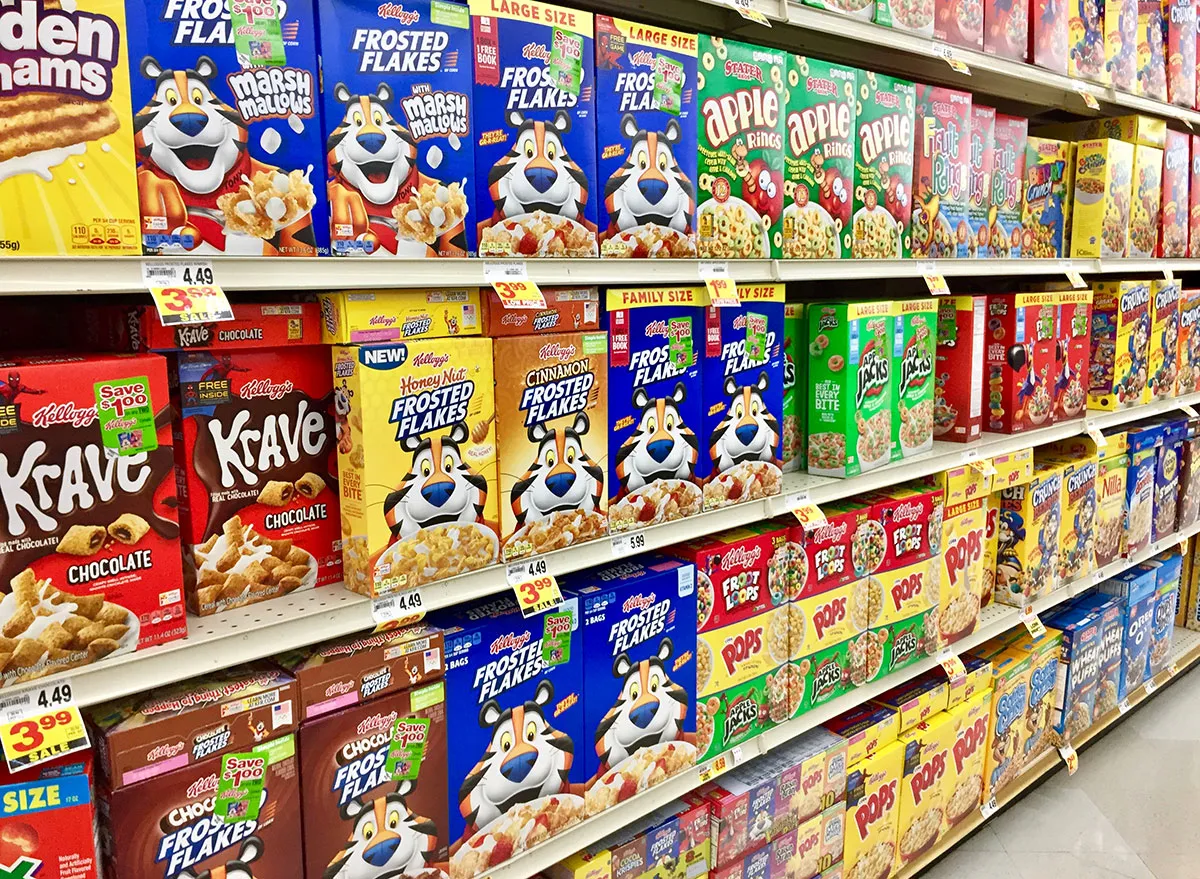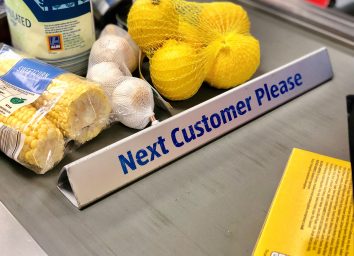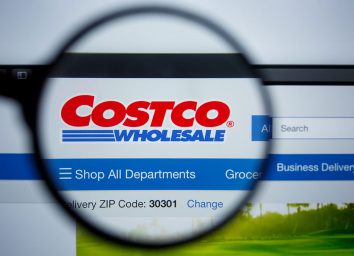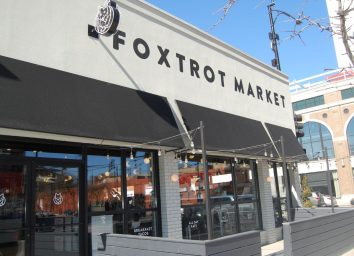Kellogg Is Doing This to Avoid a Cereal Shortage

Supply chain issues stemming from the pandemic have led to a handful of stocking issues at stores across the country—including your favorite supermarkets. You've likely seen at least some of the effects of purchase limits, shipping delays, and lots of shortages lately, and manufacturers are feeling the heat, too. Kellogg Company, the major cereal manufacturer, is trying to stay one step ahead of a potential shortage as we speak… but it's not a supply chain issue that's threatening the company's cereal production.
Around 1,400 employees at Kellogg's four cereal plants in the U.S. (which produce all of the brand's cereals) have been on strike since Oct. 5, advocating for better wages amidst a worker shortage. To keep up the supply of Kashi, Froot Loops, Frosted Flakes, and all of their other cereals, Kellogg has resorted to importing products from their own plants in Mexico, Canada, Australia, and the U.K., CEO Steve Cahillane told Bloomberg earlier this month.
Related: 4 New Grocery Shortages Shoppers Are Sharing Ahead of Winter
This week, Kellogg's failed to reach a contract agreement with its striking workers after two days of talks, CNBC reports. The company subsequently filed a lawsuit against these union employees for blocking entrances to the plants and interfering with operations by intimidating replacement workers as they entered the factories.
Without a solution between Kellogg and its workforce, it isn't known how long bringing cereal over from abroad can meet the demand. Cahillane even said during a recent earnings call that the next few months will be difficult for the company because of the strike.
Eat This, Not That! reached out for comment about how long it will take to resolve the issue and whether or not there's a threat of a cereal shortage. Kellogg spokesperson, Kris Bahner, said in a statement sent to Eat This, Not That!:
"Our number one priority has been to reach a contract, so our employees can get back to their jobs and their lives. In the meantime, we have a responsibility to our business, customers and consumers to run our plants, despite the strike. The company is continuing operations at all four plants with other resources, which includes sourcing production from our cereal plants overseas, both from Europe and Latin America."
While there may be boxes of your favorite cereals readily available on shelves, it may have traveled a long way to get there. These other items that are currently in short supply aren't so lucky.
For more info about what's happening at the grocery store in your neighborhood, read these next:
- This Beloved Movie Theater Snack Is Coming to Grocery Store Shelves
- America's Largest Grocery Chain Just Added New Snacks to Store Shelves
- Shoppers Say These Are Their Favorite Grocery Chains
- Grocery Shoppers Say These 5 Items Are Cheaper Than Meat Right Now
To get all the latest grocery store news delivered right to your email inbox every day, sign up for our newsletter!








